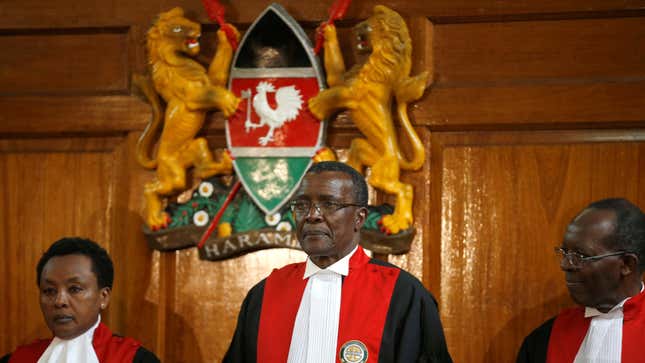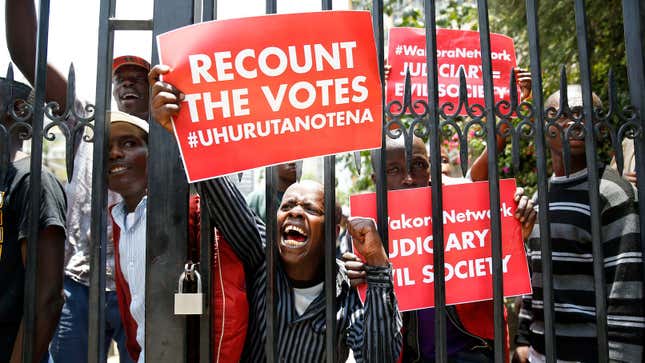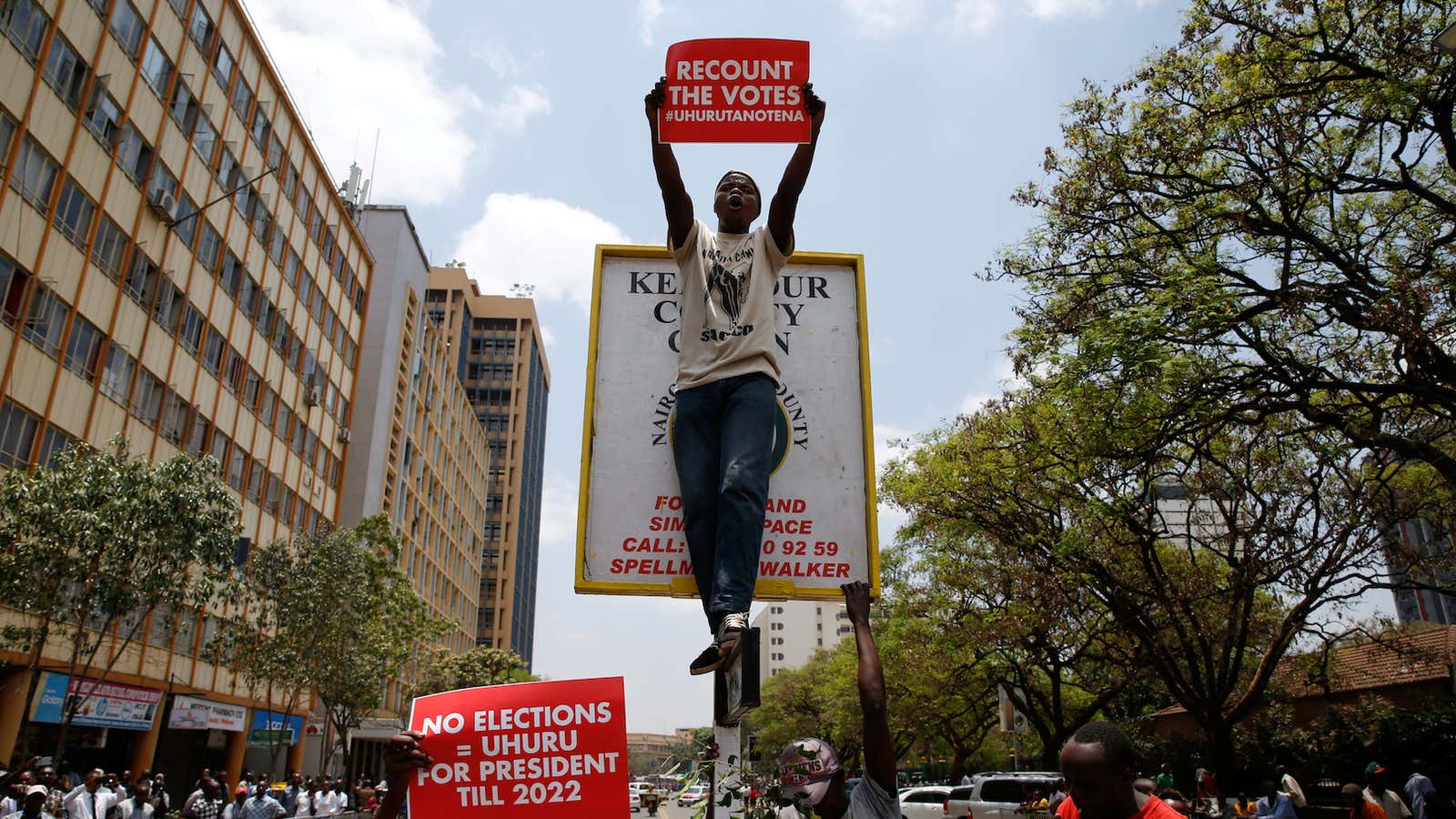Kenya’s highest court has said that the country’s Aug. 8 presidential election may have been hacked. Providing details today about the ruling that nullified the vote earlier this month, deputy chief justice Philomena Mwilu said the court accepted the opposition’s claim that the electronic voting system was “infiltrated and compromised.”
She also blamed officials at Kenya’s Independent Electoral and Boundaries Commission for announcing the results of the presidential race before votes from almost a quarter of polling stations were in. Their failure to follow a court order and verify the results meant that the election was “neither transparent or verifiable,” forcing the court to declare the vote invalid.
“This contemptuous disobedience with the court order leaves us with no option but to accept the petitioner’s claims that the [IEBC’s] IT system was infiltrated and compromised and the data therein interfered with,” Mwilu said. “Or officials themselves interfered with the data or simply refused to accept that it had bungled the transmission system and were unable to verify the data.”

In a majority decision earlier this month, Kenya’s supreme court called the August reelection of president Uhuru Kenyatta “invalid, null and void” ordered a new vote be held in 60 days. The final annulled tally put Kenyatta in the lead with over 54.2% of the vote compared to opposition leader Raila Odinga’s 44.7%—a margin of 1.4 million votes
The decision was reached after opposition candidate Raila Odinga had challenged the results in court, raising accusations of hacking and the making of a “computer generated leadership.” Election observers who endorsed the election, including former US secretary of state John Kerry, were also criticized for endorsing the election.
The hacking allegations are still yet to be proven. OT-Morpho, a French company that supplied and managed the server, said it had found no evidence of tampering.
Kenya’s sixth election since the country introduced multi-party democracy in the 1990s, has been marred by widespread public mistrust, fake news, and in some cases violence. A week before the election, a senior election official was found dead outside of the capital Nairobi.
The justices highlighted discrepancies in the election process. Kenyatta’s victory was declared when results were still missing from 10,000 polling stations in the country, about a quarter of all voting stations. Mwilu also said the IEBC announced results based on tallies documented in the Form 34Bs, totals from constituencies, without having received totals from each polling station, on forms known as 34As.
Lack of access to 3G and 4G networks also prevented the electronic transmission of results. Mwilu said that officials should have made alternative provisions and set up a robust backup system. While admitting that “no election is perfect,” the judges in the majority said that IEBC had disregarded electoral laws and behaved as if they “did not exist.”
“Elections are not only about numbers,” judge Mwilu said. “Elections should be like a math test where you only get points for the answer if you show your workings.”

Since the presidential election was annulled, the judges said that the threats against them have “become more aggressive.” In a press conference on Sept. 19, Chief justice David Maraga said that the demonstrations outside the courthouse “bordered on violence” and were “clearly intended to intimidate the judiciary.” The country’s chief registrar also said that the Judiciary Service Commission had received three petitions seeking to remove the chief justice, his deputy, alongside judge Isaac Lenaola.
Maraga called on Kenyans to stand up for the independence of the judiciary and vowed to uphold the constitution. While reading the detailed judgment, Maraga said, “When the rule of law ends, tyranny begins.”
